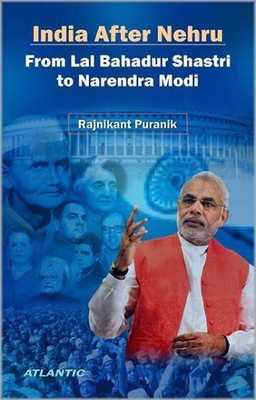India After Nehru from Lal Bahadur Shastri to Narendra Modi(English, Paperback, Puranik Rajnikant)
Quick Overview
Product Price Comparison
Unfortunately for the millions of Indians, particularly its poor, Jawaharlal Nehru, despite his best intentions, remained grievously ineffective, unwittingly laying the foundations of IndiaŌĆÖs grinding poverty and misery, condemning it to be a third-rate, third-world country (detailed in the book Foundations of Misery, India 1947-64: Blunders of the Nehruvian Era), Sadly, NehruŌĆÖs dynasty reinforced those blighted foundations. The book covers the post-Nehru period of that calamitous reinforcement. Part-reversal of those worldŌĆÖs-worst-economic-practices by the wise non-dynasts like Narasimha Rao and Vajpayee dramatically turned hopelessness into hope. However, with the return of the dynasts as UPA-I and II and their rollback to the bad-old-ways, it again turned into gray cynical hopelessness. It is hoped that Narendra Modi would usher in a new era helping India emerge from its misery, and propel it forward into the ranks of the prosperous First-World. Starting from the post-Nehru period of Lal Bahadur Shastri, the book covers the period of Indira Gandhi, Morarji Desai, Rajiv Gandhi, Narasimha Rao, Vajpayee and others; the last decade of Sonia-Rahul-Manmohan Singh; and the AAP, the BJP, and Narendra Modi. Not comprehensively but selectively, it picks up only those aspects considered critical if India has to rise from the depths to which it has been consigned. The book devotes a separate detailed chapter to interesting and thought-provoking FAQs and issues relating to India. The book contends that had India embraced competitive capitalism and free market economy after independence, rather than pretentious, successful-in-no-country poverty-perpetuating and misery-multiplying Nehruvian socialistic claptrap, India would have been a far more firmly united and prosperous first-world country like Singapore, South Korea, Australia, and the like by 1980.


